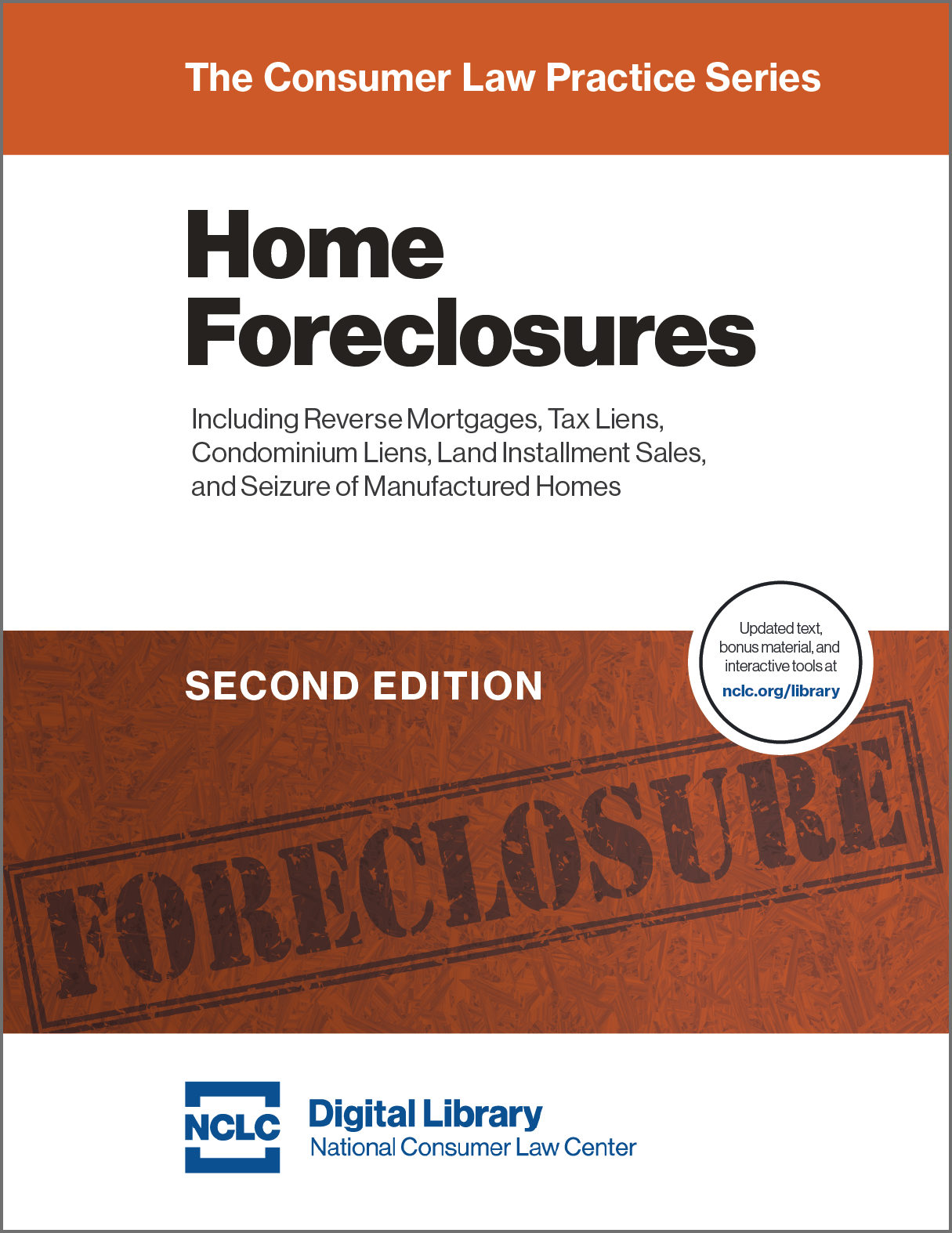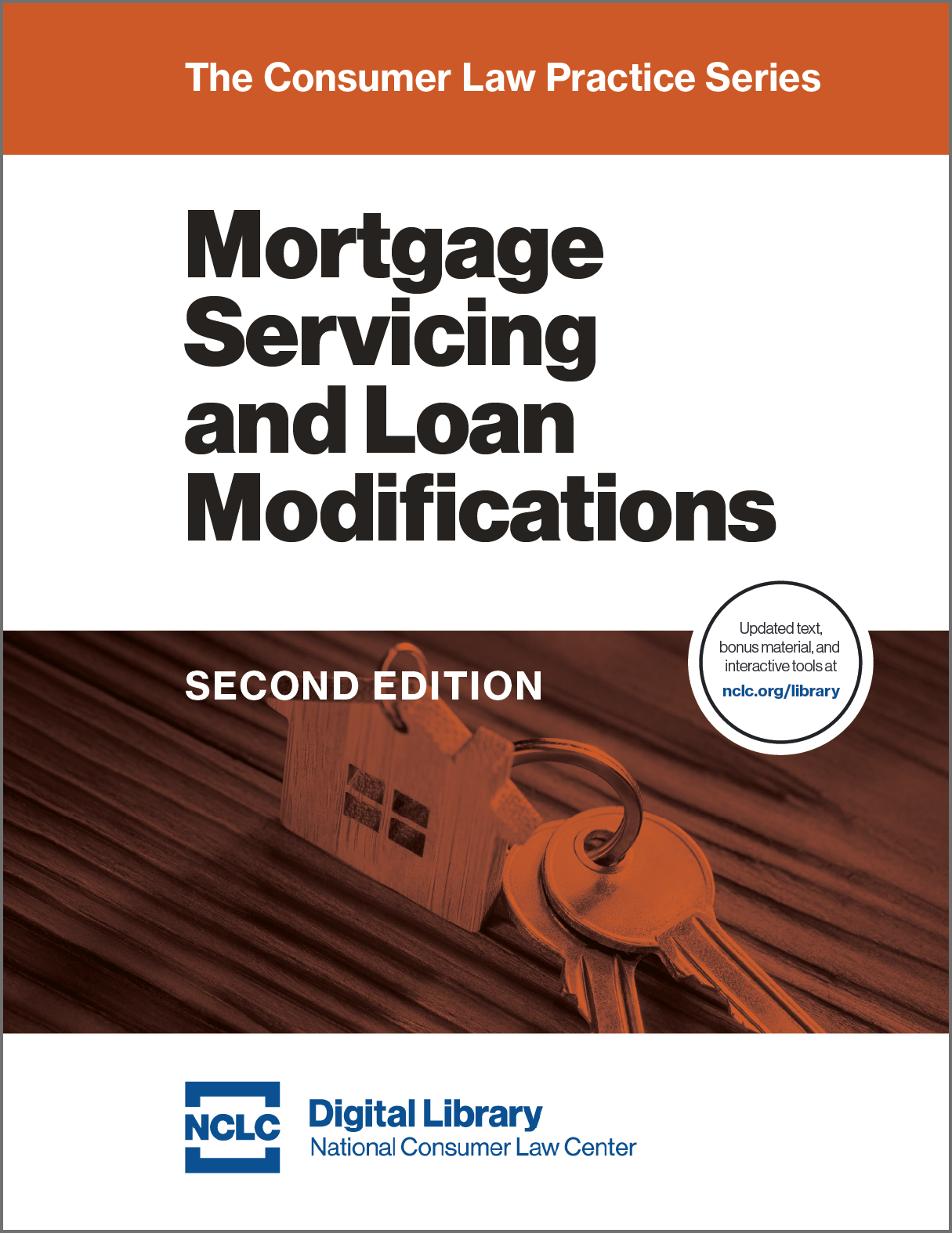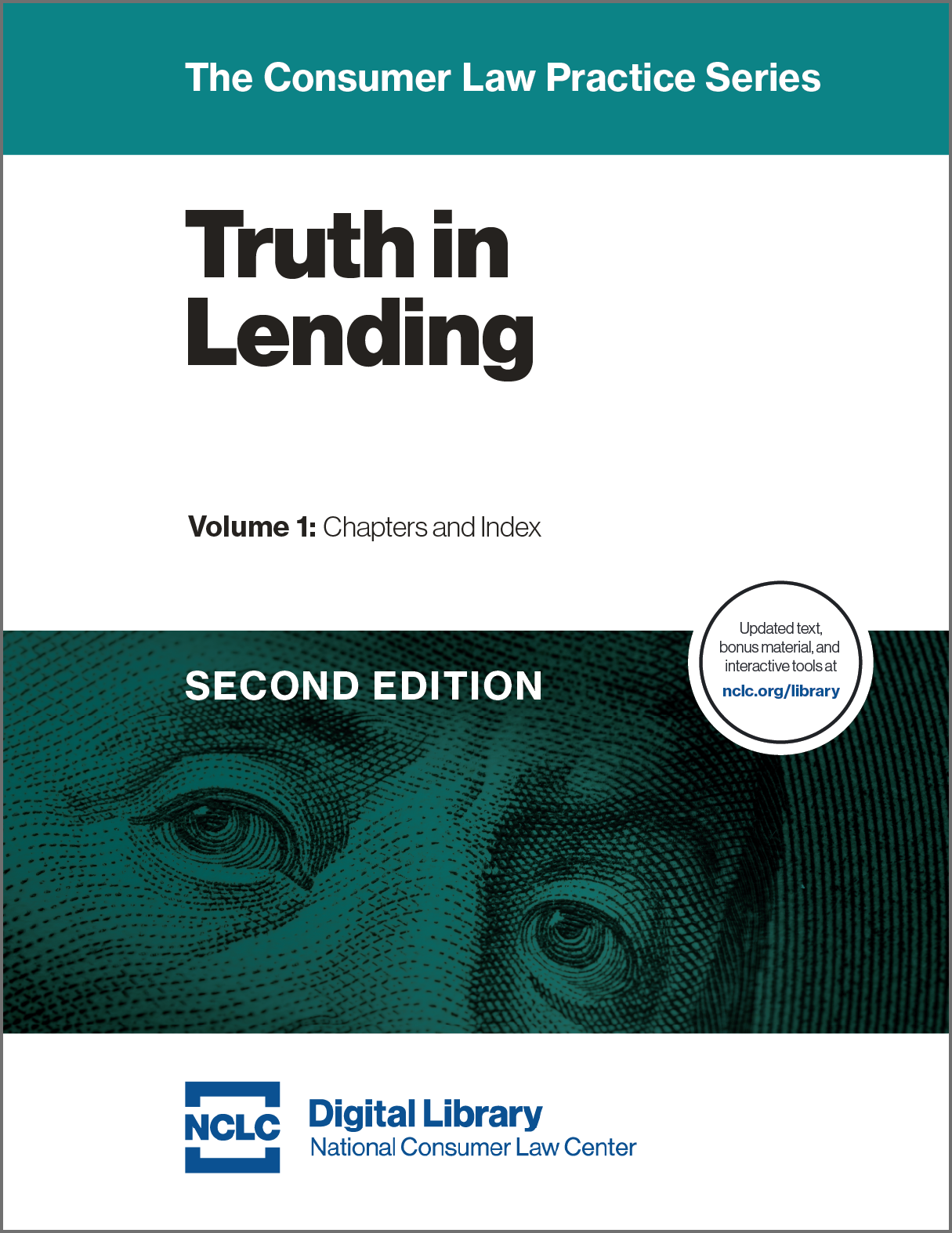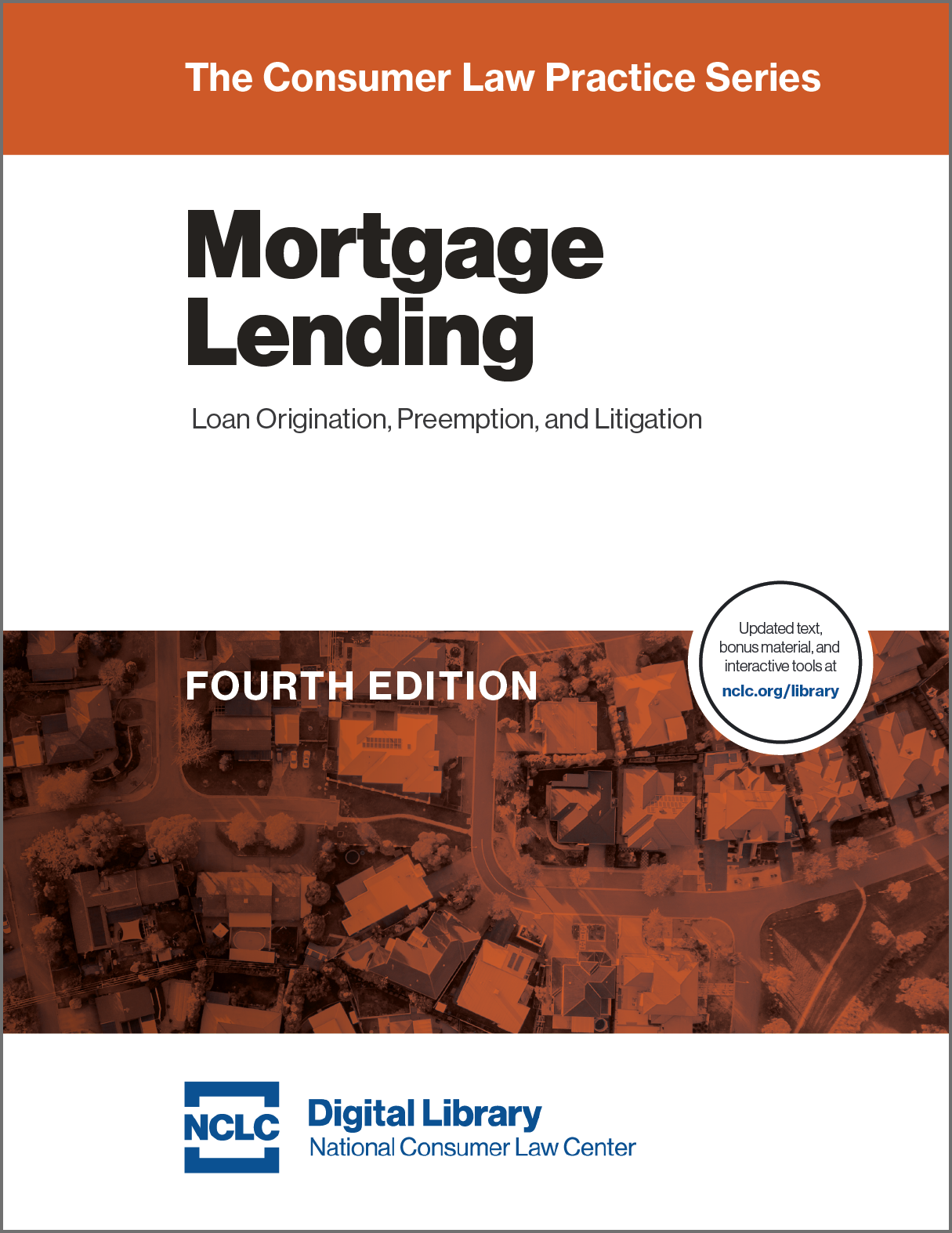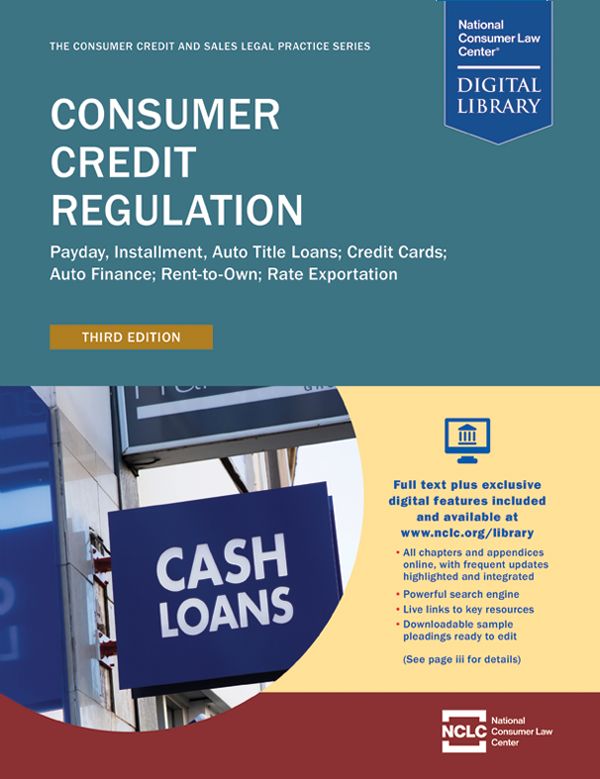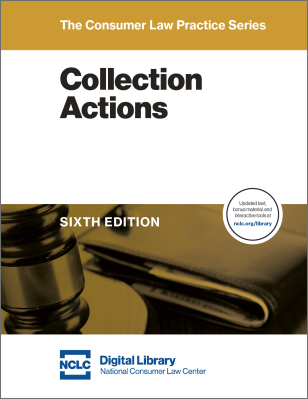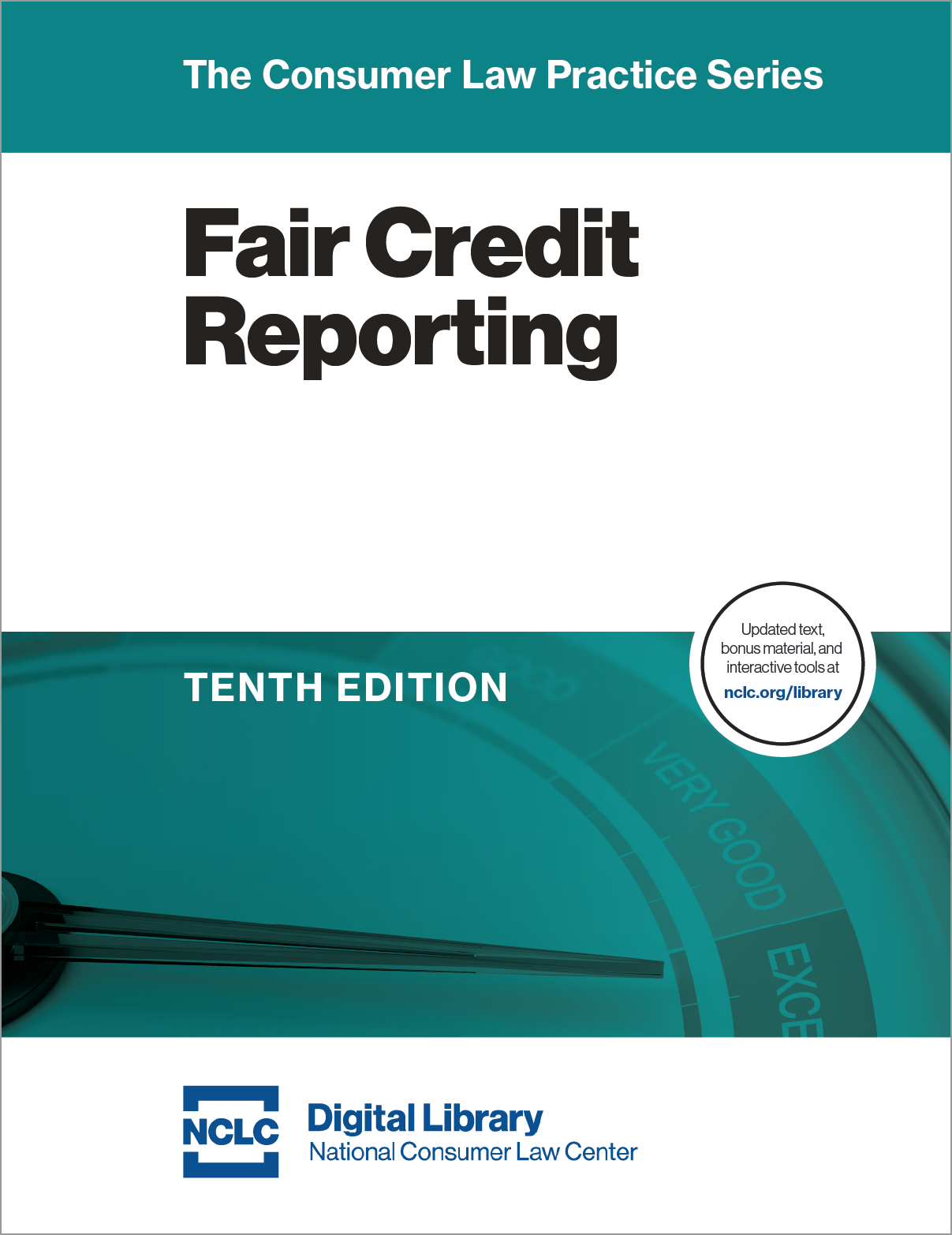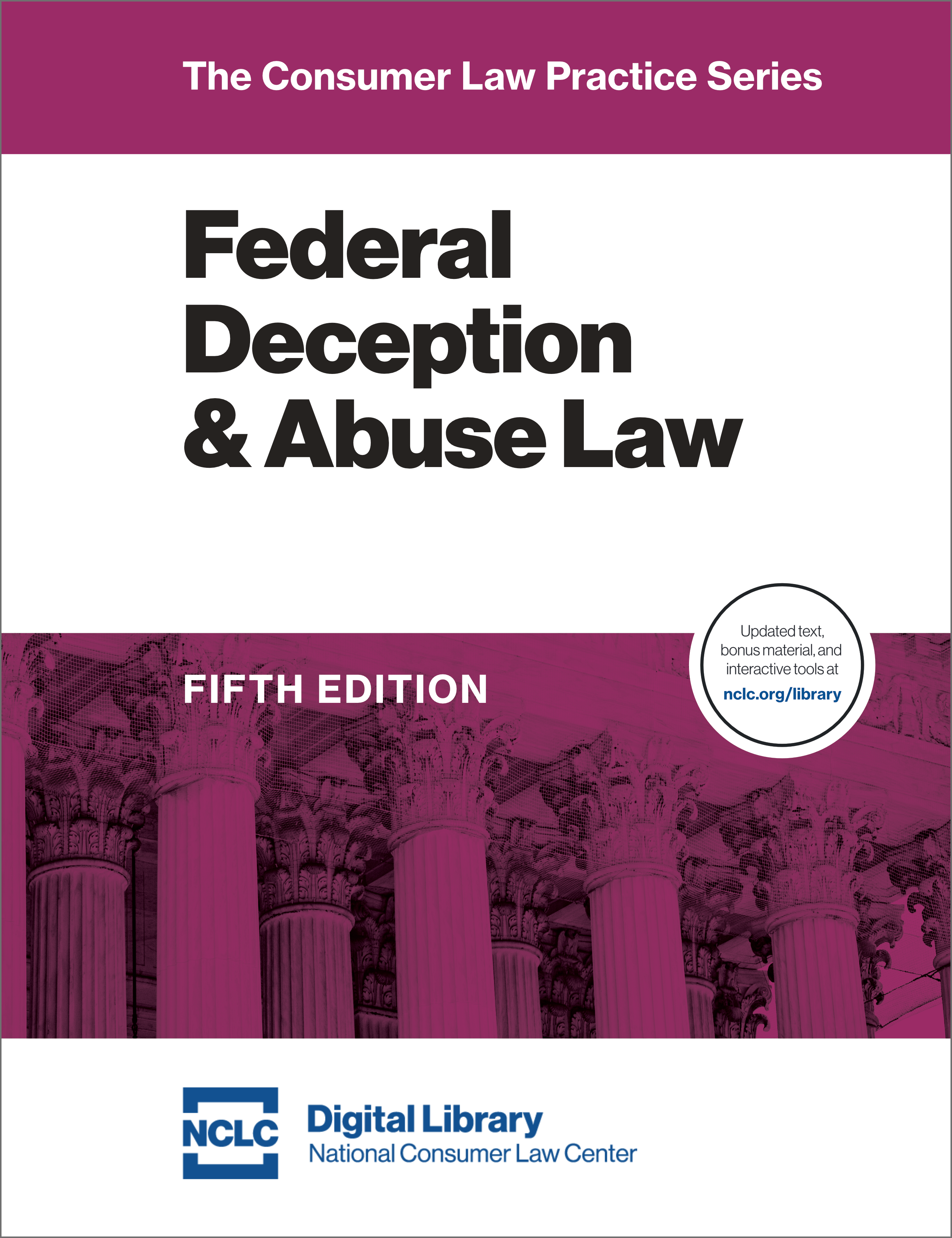Search
Fertile Ground for FCRA Claims: Employee & Tenant Background Checks
Free Access to NCLC’s Criminal Justice Debt Chapter, Litigation Guide
Mortgage Relief for Homeowners Affected By COVID-19
Implications of New CFPB Bulletin on Consumer Reporting of Renters
On July 1, 2021, the Consumer Financial Protection Bureau (CFPB) issued an Enforcement Compliance Bulletin (hereafter Rental Reporting Bulletin) on consumer reporting issues involving tenant screening reports as well as the reporting of rental information on credit reports.
Two New CFPB Advisory Opinions Facilitate Private FCRA Litigation
Effective January 23, 2024, two new CFPB advisory opinions clarify a number of critical Fair Credit Reporting Act (FCRA) issues and should facilitate private FCRA litigation. The first advisory opinion addresses accuracy issues in background check reports used by most employers and landlords. The second advisory opinion addresses problems consumers face when seeking complete disclosure of their credit reports.
Congressional, First Circuit, CFPB, and VA Actions Affecting Fair Credit Reporting
A Congressional amendment, a First Circuit decision, two CFPB administrative issuances, a CFPB report, and a Veterans Administration rule all will have significant consequences for consumer reporting under the Fair Credit Reporting Act (FCRA). This article provides the highlights of these recent developments and their implications for consumers, advocates, and FCRA practitioners.
Image

FCRA Remedies When Criminal Records Lead to Rental Denials
Too frequently landlords deny rental housing applications based upon tenant screening reports containing erroneous or obsolete criminal record histories. This article discusses widespread problems involving criminal record reporting that may give rise to powerful consumer remedies under the Fair Credit Reporting Act. The article provides practical, step-by-step guidance for obtaining that relief.
CFPB Issues Three FCRA Interpretations with Widespread Implications
This article examines practice implications of three recent CFPB interpretations of the Fair Credit Reporting Act, including: tenant and background screening companies’ use of name-only matching violates the FCRA; users are strictly liable for permissible use violations; and state law can limit when medical debt, evictions, rental arrears, and criminal records can first be reported.
LIBOR’s Death Will Soon Impact $1.4 Trillion in Consumer Contracts
The most widely used index for adjustable-rate consumer contracts, the LIBOR, will soon cease to exist. This article explains new legal requirements that will apply when creditors are forced to change the index and margin on $1.4 trillion of adjustable-rate consumer contracts—millions of home mortgages, home equity lines of credit (HELOCs), credit cards, and private student loans.
Supreme Court: Federal Agencies Can be Sued Under Fair Credit Reporting Act
On February 8, the Supreme Court held that the FCRA waives federal sovereign immunity from FCRA damage claims when federal agencies furnish inaccurate information to consumer reporting agencies. This article examines the broader implications—other FCRA claims against federal agencies, FCRA claims against state and local agencies, and which other consumer statutes waive sovereign immunity.
Image
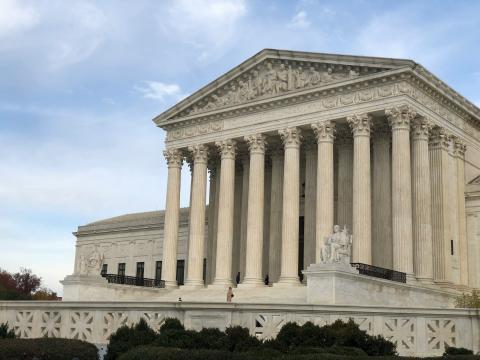
Consumer Litigation Guide to Supreme Court Rejection of Chevron
Two just-decided Supreme Court rulings facilitate industry challenges to federal agency rules. This article examines the implications of these decisions for consumer attorneys bringing federal rule-based claims where defendants now argue the rule is invalid or inapplicable. The article recommends eight steps to respond to these Supreme Court decisions to preserve the consumer’s claims.
New Guidance Suggests Remedies for Tenant Screening Practices
A new HUD guidance explains that tenant screening companies and landlords that use them may potentially violate the Fair Housing Act’s anti-discrimination provisions, which could give rise to private remedies. As explained in this article, the guidance singles out problematic tenant screening practices involving credit history, criminal records, and eviction filings, and lists recommended landlord and screening company actions.
